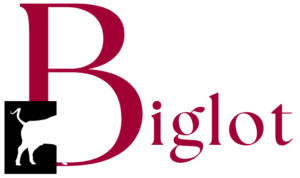- EUR/GBP rises over a third of a percent on Monday as traders continue to discount comments from BoE’s Andrew Bailey.
- The bank’s Governor said the BoE was going to get more “activist” about cutting interest rates.
- Upside for the pair is limited, however, as data from the Eurozone reflects a cooling economy.
EUR/GBP exchanges hands in the 0.8390s after gaining over a third of a percent on Monday as the Pound Sterling (GBP) resumes its negative trend of recent days, triggered by remarks from the Governor of the Bank of England (BoE) Andrew Bailey. The pair’s gains are likely to be contained, however, by weak data out of the Eurozone on Monday, which showed consumers tightening their belts and German Factory Orders in decline, which, in turn, undermine the Euro (EUR).
The Euro outperforms the Pound on Monday as markets continue to digest comments from BoE Governor Bailey last Thursday who said that the BoE was going to get more “activist” and “aggressive” about cutting interest rates. His words surprised traders as up until then the BoE had been seen as one of the major central banks least likely to cut interest rates in the near-term. Lower interest rates are negative for the Pound as they reduce foreign capital inflows, and as a consequence Sterling lost over 1.0% against the Euro on the day.
On Friday, the BoE’s Chief Economist, Huw Pill, administered some antidote by arguing the BoE should follow a more cautious approach in cutting interest rates, and Sterling recovered a little strength. Upbeat House Price data from lender Halifax further underpins the Pound on Monday but is not enough to catalyze a rally.
EUR/GBP, however, sees its upside capped as the Euro struggles to gain traction following the release of weak Eurozone Retail Sales data on Monday. The data showed sales rose by only 0.80% annually in August, undershooting the 1.0% expected. Nevertheless, this was higher than the 0.1% decline in July.
The single currency is further hampered by concerns around German manufacturing and this was not helped by German Factory Orders data on Monday, which showed a decline of 5.8% on a seasonally adjusted basis in August. This was well below the 2.0% decline expected and the upwardly-revised 3.9% rise of the previous month. The data adds further veracity to the view that the Eurozone’s largest economy is sliding into a recession.
Falling inflation data in the Eurozone, which fell below the European Central Bank’s (ECB) 2.0% target for the first time in over three years in September when headline inflation hit 1.8%, is further weighing on the Euro. This has increased the chances that the ECB will cut interest rates at its meeting next week. Lower interest rates are usually negative for a currency as they reduce foreign capital inflows.
ECB Governing Council member François Villeroy de Galhau further encouraged speculation on this point overnight when he said that the ECB will “quite probably” cut interest rates at the next meeting. Villeroy added that the ECB has to pay attention to the risk of undershooting its 2.0% inflation target “due to a weak growth and a restrictive monetary policy for too long.” His comments “support market pricing for a total 150 bp of easing over the next 12 months” from the ECB according to analysts at Brown Brothers Harriman (BBH).













